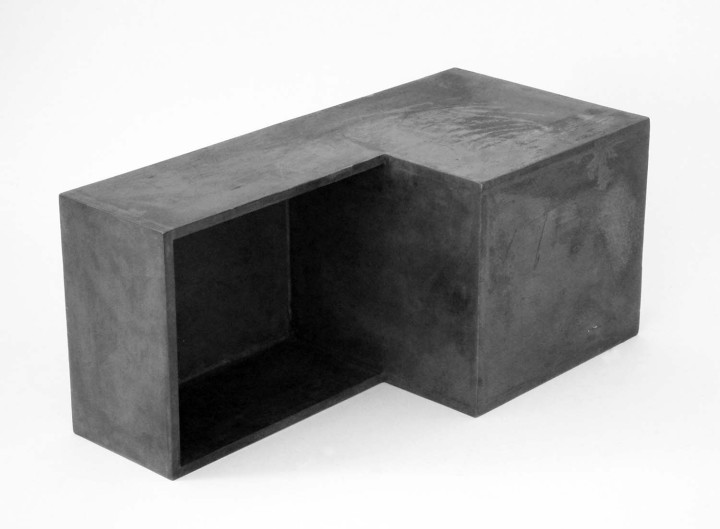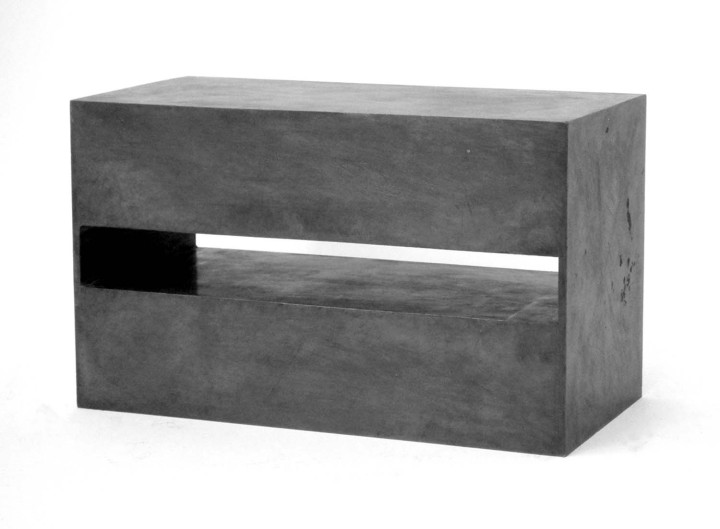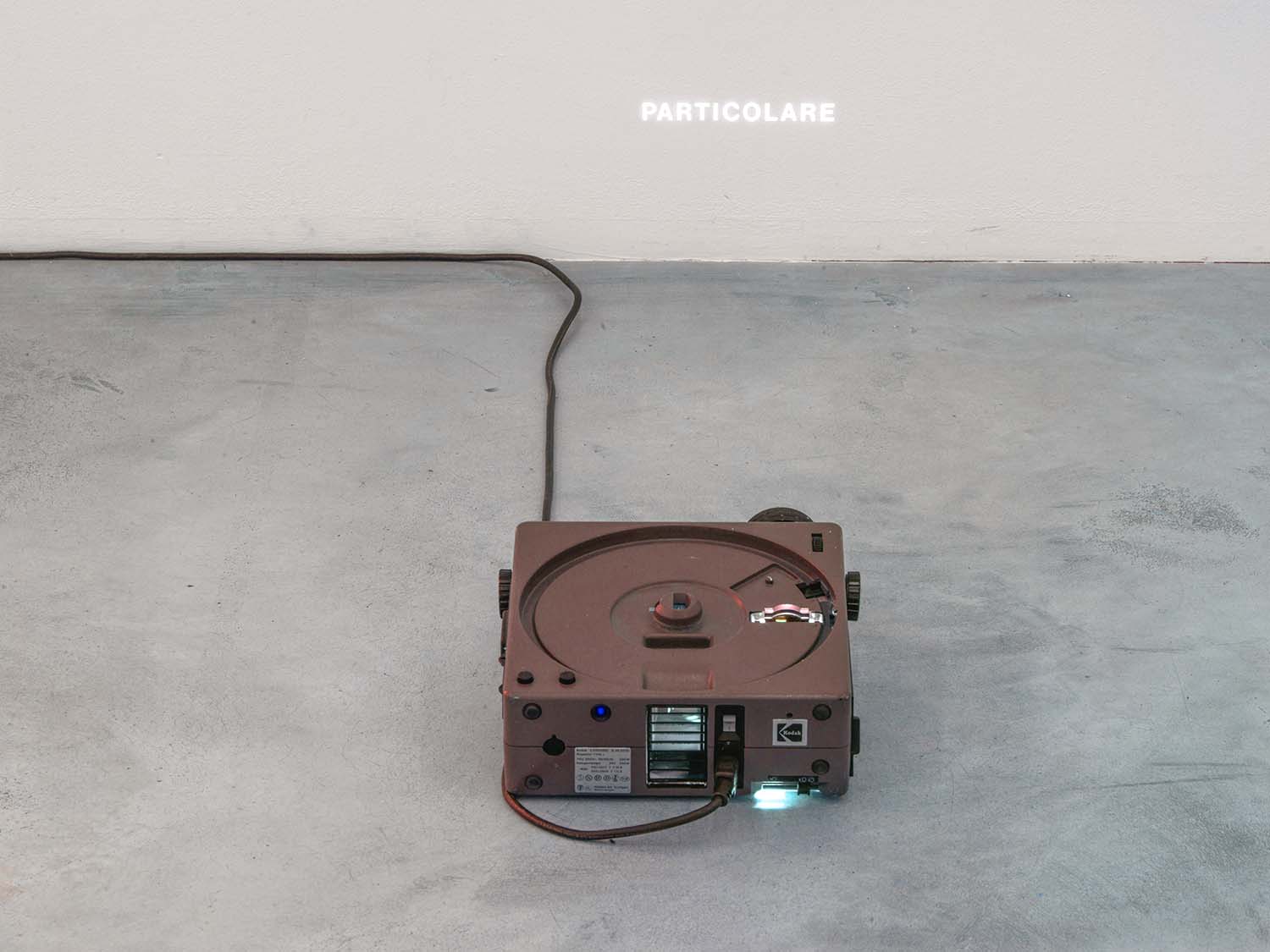Born in Cologne in 1936, Joachim Bandau’s early experiences of war-torn Germany undeniably shaped his later fascination with bunkers as architectural forms. All of the historical drawings of the 1970s and ’80s shown here took inspiration from Paul Virilio’s 1975 book Bunker Archaeology.
In the work (Paul Virilio – Bunker Archéologie) 8.6.1976 (1976), Bandau sketches the thick, solid, modernist forms of these bunkers in heavy graphite, softened by pale pigment washes of his watery coffee. Numerous individual architectural models are depicted upon the page, one after another, their imposing walls and magnificent curves reproduced with taxonomic accuracy. Executed with bold crosshatching to emphasize the curve of the structure, Bunker 19.4.78 (1978) is almost anthropomorphic, its windows appearing as deep-set black eyes resting within a dark helmet, a sinister architectural equivalent to Jacob Epstein’s Rock Drill of the previous war. By contrast, the drawings from the 1980s use essential lines only, and are elegantly worked onto the pages of a British book of lithography from the 1840s. Their thick, creamy appearance adds a soft, gentle quality to structures wallowing in complex pasts.
Elsewhere, a number of the artist’s small-scale bronzes from the 1990s protrude from the walls at different heights. Composed of compact shapes and perforated by window-like indents, works such as 17 (2005) mimic the formal structure of the bunkers themselves (though the artist maintains that these are unrelated). Their simple geometrical forms have a paradoxical lightness suggesting cubic emanations; Thomas Fischer has noted how “they look like they might be part of a bigger piece hiding behind the wall.” While these bold shapes recall Donald Judd’s Minimalism, they seek less the autonomy of the constructed object and more an architectonic delineation of space, as structures with their own social history: shielding, protecting and hiding.




